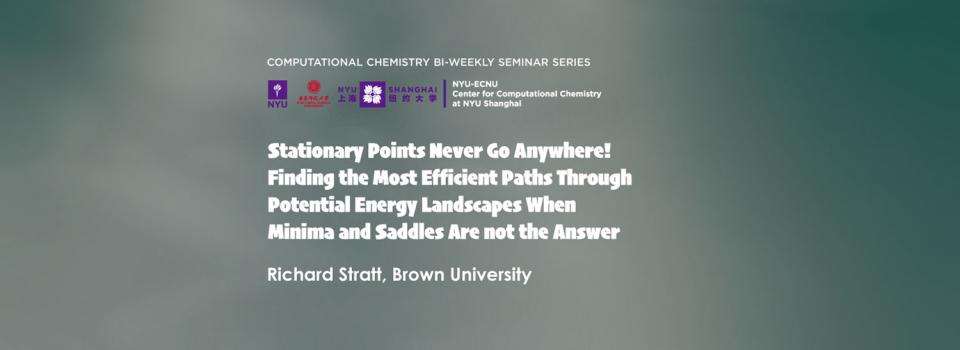
Abstract:
The usual potential energy landscape view is all about minimizing energy: Systems move from minimum to minimum on their potential energy surfaces -- and their rate of passage is determined by how much energy is needed to surmount the lowest of the high energy locations (the saddle points) between the minima. But in such liquid-dynamics examples as supercooled liquids and liquid crystals, (and in small molecule chemical reactions examples featuring "roaming") the main issue is often entropy, not energy. Dynamics can be slow in these situations because the system has a hard time finding the optimum pathways, not because it has to overcome large barriers. Moreover, many of the potential minima in these examples have almost no physical significance. What lessons does the potential energy landscape have for us in these cases? We suggest that the potential energy landscape still provides important clues to the dynamics, but the most interesting features are now the geodesic (shortest) paths through these landscape. We show how such paths can be calculated and analyzed and how that analysis can reveal the underlying cause and character of slow dynamics.
Biography:
Richard Stratt received an undergraduate B.S. in chemistry from the Massachusetts Institute of Technology in 1975 and a Ph.D. in chemistry from the University of California at Berkeley in 1979. After an initial appointment as a Postdoctoral Fellow at the University of Illinois at Urbana-Champaign, he was awarded a National Science Foundation postdoctoral fellowship to finish off that work at Illinois.
Stratt joined the chemistry department faculty at Brown University in 1980 as an Assistant Professor. He was promoted to Associate Professor of Chemistry with tenure at Brown in 1986 and to Full Professor of Chemistry at Brown in 1988. He served as Chair of the Brown University chemistry department 1996-1999 and was awarded the University's Philip J. Bray Award for Excellence in Teaching in the Physical Sciences in 2010. Brown University recognized his accomplishments by naming him Harrison S. Kravis University Professor for the year 1999-2000 and then awarding him an endowed chair as the Newport Rogers Professor in Chemistry in 2004. He was given a joint appointment with the physics department and added Professor of Physics to his title in 2006.
Stratt's research and his research group have received a number of honors over the years. Stratt was named an Alfred P. Sloan Foundation Fellow 1985-1989, a Fulbright Scholar 1991-1992, a Fellow of the American Physical Society in 1997, a Fellow of the American Chemical Society in 2013, and selected to present the Strouhal Lectureship at Charles University in Prague in 2018. During their time in his research group, two students of his received prestigious awards: a Materials Research Society Student Award in 1985 and the American Physical Society Apker Award in 1990.
Over the years, Stratt has served as a member of the editorial board of The Journal of Physical Chemistry, The Journal of Chemical Physics, and Molecular Physics. He was elected Chair of both the Theoretical Chemistry subdivision and the Physical Chemistry division of the American Chemical Society. His research focuses on understanding the molecular origins of the spectroscopic and dynamical properties of liquids.
Bi-Weekly Seminar Series by the NYU-ECNU Center for Computational Chemistry at NYU Shanghai


